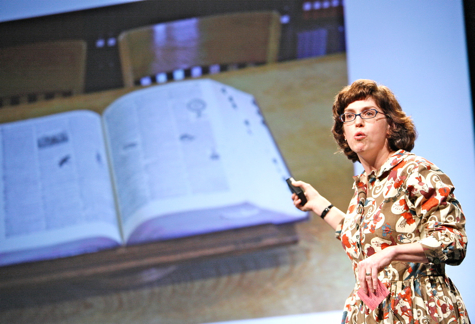 Meet Wordster, touted to be the Wikipedia for the English language. Created by Associate Professor Anindya Datta as a project in the School of Computing at the National University of Singapore (NUS), Wordster will be commercialized through a start-up company and the free online resource will be made available to the public early next year.
Meet Wordster, touted to be the Wikipedia for the English language. Created by Associate Professor Anindya Datta as a project in the School of Computing at the National University of Singapore (NUS), Wordster will be commercialized through a start-up company and the free online resource will be made available to the public early next year.
With assistance from Master’s student Ryan Shaw, 25, and PhD students Bao Yang, 24, and Fang Fang, 22, Dr Datta has been building up and testing the website over the past four months. Dr Teo Hock Hai, head of the department of Information Systems at the NUS School of Computing, said he is “absolutely excited” about Wordster, adding: “I believe it has the great potential to innovate the dictionary the way Wikipedia has transformed the encyclopedia.” Dr Datta, 44, said: “I thought of the idea about two years ago when I realized that most dictionaries provided only definitions without contextual meanings. I thought it would be interesting to revolutionize the dictionary.”
He created programmes that fulfill a variety of functions. Apart from giving definitions, Wordster also gives a series of sentences for each definition.

The sentences are real examples taken from the Web by crawlers – robots that trawl the Internet for information – or sent in by users. The site was opened to users for their contributions two weeks ago. Wordster also has a “reverse dictionary” which will provide words when meanings are typed in. “For example, if you type in ‘someone who talks excessively’, Wordster will suggest words like ‘garrulous’ or ‘loquacious’,” Dr Datta said. A third function is getting the right meaning for words in the context of a sentence, such as the word “jumped” in the sentence “the mugger jumped the woman”.
Wordster, which has over two million words in its database, will provide pictures to illustrate words in different contexts and can even generate lists of potential answers if the user keys in incomplete crossword puzzle words.
“It does other things like providing idioms or phrases associated with a word and seeking definitions from the public about words not yet in the dictionary,” he said.
The project had help from a government grant of $200,000. The start-up hopes to earn revenue through online advertisements. It also plans to do white label deals with online publications like major newspapers, magazines and sites like Amazon. White label deals are arrangements where companies take a product manufactured elsewhere and put their brand on it.
“Finally, we plan to license our valuable data,” said Dr Datta.
Via The Sunday Times, Singapore